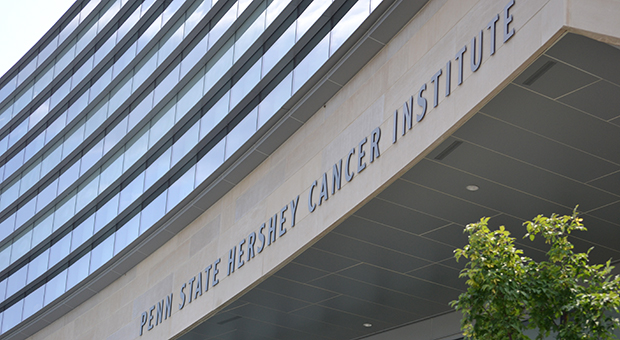Capstone project leads to upgraded cancer surveillance tool

As a research support assistant in Penn State College of Medicine’s Department of Public Health Sciences, Nate Geyer has always been interested in epidemiology and geography. As a recent graduate of Penn State’s Master of Geographic Information Systems Program, he was able to put those interests together by creating a new version of LionVu, a cancer mapping tool.
“What appealed to me was my sense of creating something new and using my skills to improve public health research,” Geyer said. He programmed the new version and implemented a questionnaire to assess its usability. Then for his capstone project, Geyer analyzed the data and published an article in the International Journal of Geo-Information.
Originally built in 2015 by Penn State Cancer Institute, LionVu is a web-based cancer data visualization dashboard for public health professionals, with an emphasis on the institute’s 28-county catchment area in central Pennsylvania.
But by 2020, it was time for an upgrade to both the user-interface and technical platform, said Eugene Lengerich, professor of public health sciences and associate director, health disparities and engagement, at Penn State Cancer Institute. So Lengerich approached Geyer about creating a new version of LionVu because he knew of his expertise in the analysis of spatial data.
“LionVu 2.0 lets the user identify high risk areas or populations in central Pennsylvania,” Lengerich said. “We use this information to target research, outreach and education. It also shows us where there may be a shortage of health care facilities.
The new version is not limited to cancer-related queries, Geyer said. “Though LionVu was developed for Penn State Cancer Institute, the tool is not disease-specific. It includes more than 500 data fields, so it is cross-sectional.”
Penn State Cancer Institute plans a formal rollout of LionVu later this month.
Read the full story on Penn State News
Read more about Geyer’s development of LionVu 2.0 in the International Journal of Geo-Information
If you're having trouble accessing this content, or would like it in another format, please email Penn State Health Marketing & Communications.
